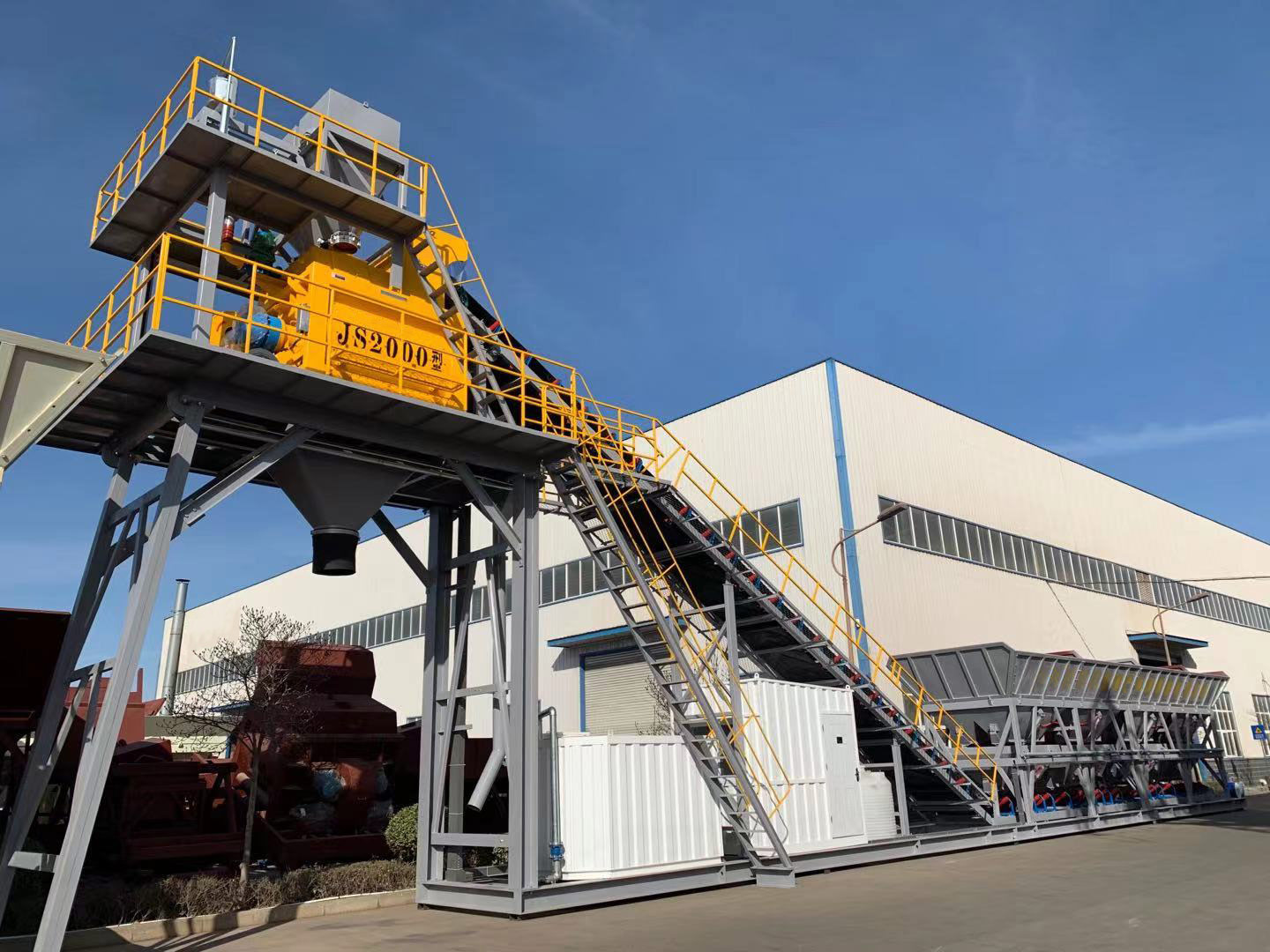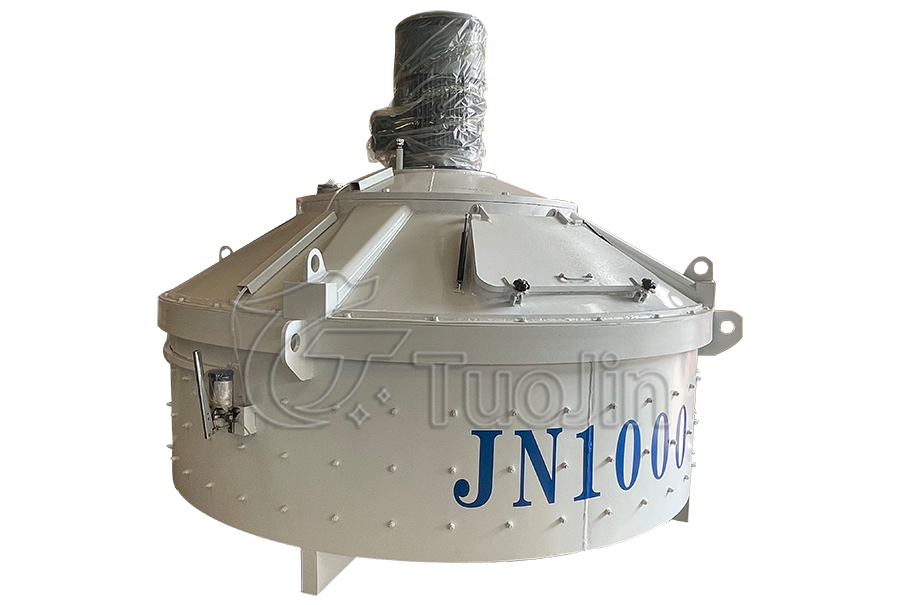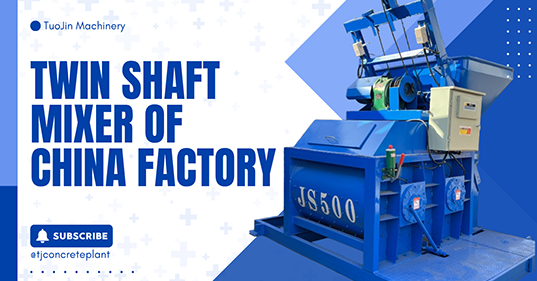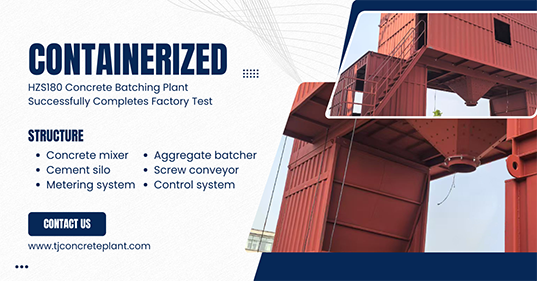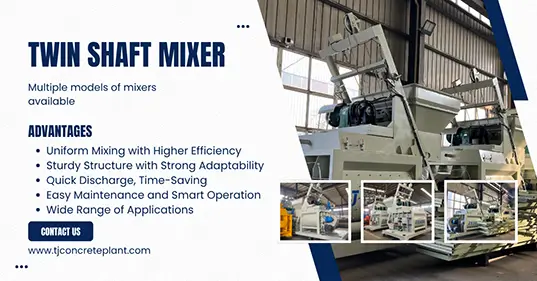What is a planetary mixer?
A planetary mixer is an efficient and uniform mixing device suitable for a wide range of materials. It is named for its mixing action, which resembles the principle of planets orbiting the sun—i.e., the mixer rotates on its axis while simultaneously orbiting around the central axis. This enables the material to roll, shear, and mix thoroughly in all directions within the mixing drum, with no dead zones.
Due to its superior mixing performance, the planetary mixer is widely used in industries such as high-performance concrete, precast components, ceramics, refractory materials, glass, chemicals, and new energy battery slurries.
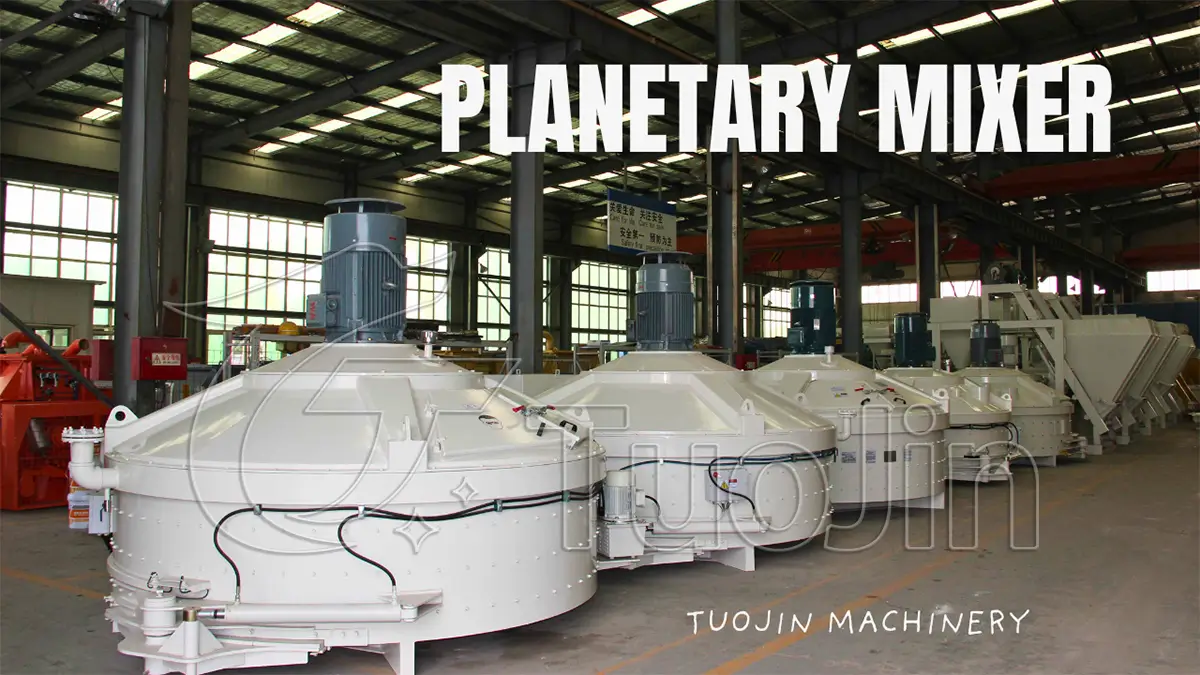
How does a planetary mixer work?
A planetary mixer is primarily driven by a motor that powers a gearbox, which drives the mixing arms to orbit along the inner wall of the mixing drum. At the same time, the mixers on the arms rotate on their own. This complex composite motion ensures that the materials are thoroughly mixed in a short time, with high mixing quality and excellent uniformity.
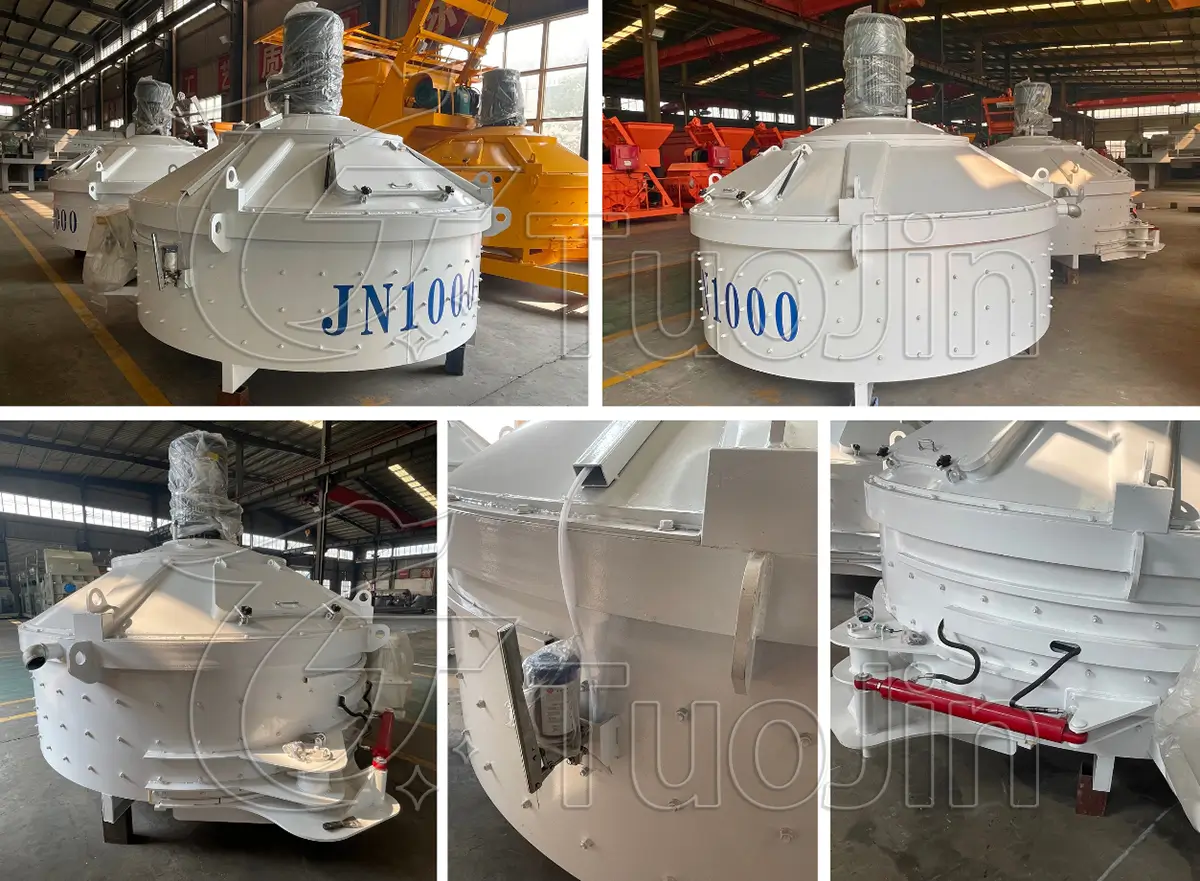
Parts of Planetary Mixer
1. Mixing Device
Special designed mixing facility make the mixing faster and more homogeneous, no material heaped.
2. Reduction Gearbox
The gearbox unit, specially designed for a balanced distribution of power to the various mixing device,ensures a high efficiency andlow-noise rotation.
3. Maintenance Access
Large access facllity is for easy maintenance and cleaning.The key-operated safety switch guarantees the motor cannot be poweredwith cover open.
4. Hydraulic Unit
Hydraulic unit equipped with manual pump allows the door be opened in case of electric failure.
5. Discharging Door
The discharging door is equipped with limit switches,which can be opened at any angle.Maximum three discharging doors are avallabie.
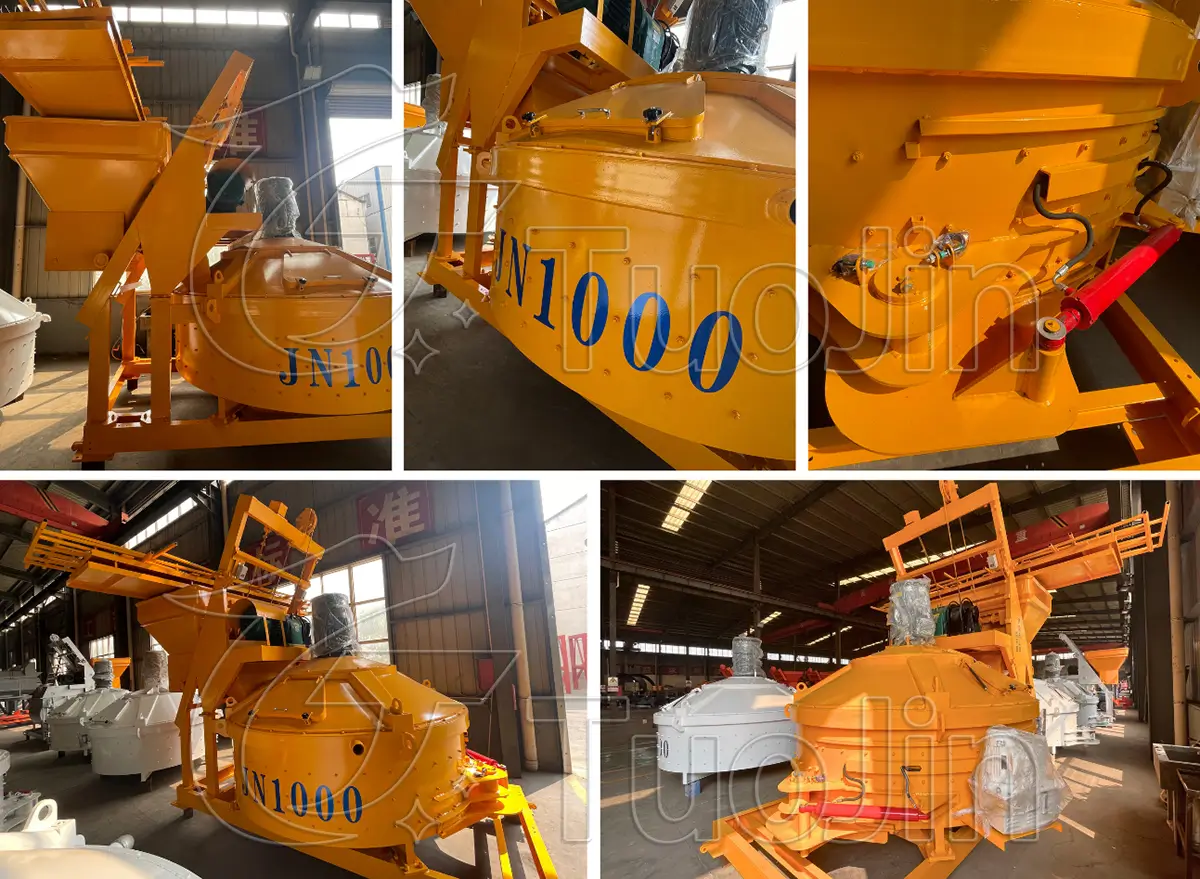
Advantages & Features
High Uniformity: Complex mixing action ensures thorough material turnover, resulting in more uniform mixing.
High Mixing Efficiency: High-quality mixing is completed in a short time, improving production efficiency.
Strong Adaptability: Suitable for high-viscosity, high-density, fine-grained, or ultra-fine homogenized materials.
No Dead Zone Design: Mixing blades closely follow the drum wall, leaving no residue and making cleaning easy.
Wear Resistance: Mixing blades and the mixing drum are made of highly wear-resistant materials, ensuring long service life.
Intelligent Operation: Can integrate functions like automatic weighing, temperature control, humidity control, and remote monitoring.
Flexible Customization: Different types of mixing blades, discharge ports, etc., can be designed according to specific process requirements.
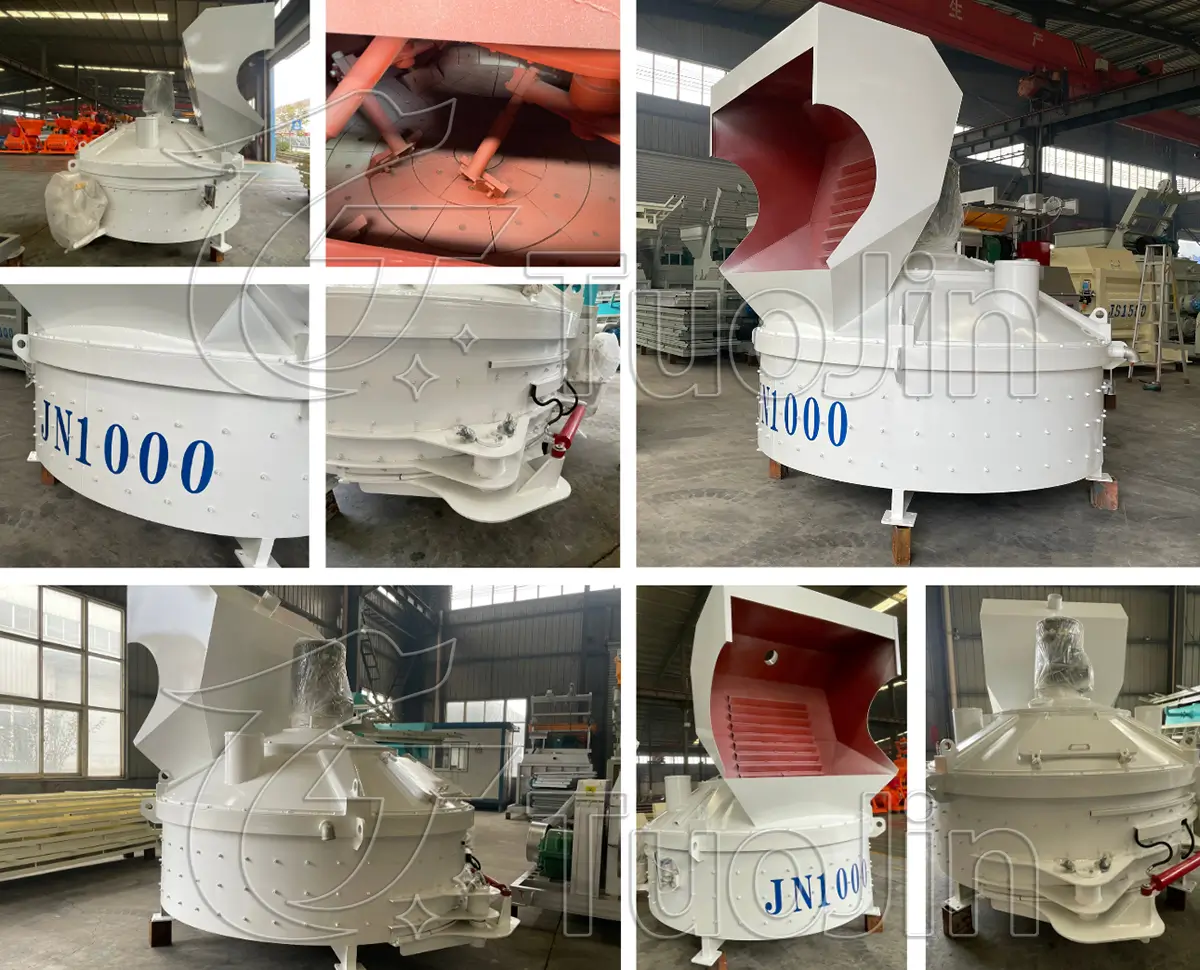
Technical Specifications
| Model | MP330 | MP500 | MP750 | MP1000 | MP1250 | MP1500 | MP2000 | MP2500 | MP3000 | |
|---|---|---|---|---|---|---|---|---|---|---|
| Input capacity | 500 | 750 | 1125 | 1500 | 1875 | 2250 | 3000 | 3750 | 4500 | |
| Output capacity | 330 | 500 | 750 | 1000 | 1250 | 1500 | 2000 | 2500 | 3000 | |
| Discharging power | Pneumatic batching (optional hydraulic batching) | 3 | 3 | 3 | 4 | 4 | 4 | |||
| Discharge quality | 800 | 1200 | 1800 | 2400 | 3000 | 3600 | 4800 | 6000 | 7200 | |
| Mixing power | 15 | 18.5 | 30 | 37 | 45 | 55 | 75 | 90 | 110 | |
| Number of planets | 1 | 1 | 1 | 2 | 2 | 2 | 3 | 3 | 3 | |
| Leaf number | 2 | 2 | 3 | 4 | 4 | 4 | 6 | 6 | 9 | |
| Number of scrapers | 1 | 1 | 2 | 2 | 2 | 2 | 3 | 3 | 3 | |
| Revolution/Rotation | 15/32 | 15/32 | 15/32 | 11/26 | 11/26 | 11/26 | 11/26 | 11/26 | 11/26 | |
| Machine quality | 2000 | 2700 | 3800 | 6500 | 6900 | 7500 | 9200 | 10800 | 11500 | |
| Shape size | 1850✖1727✖1870 | 2220✖1986✖1935 | 2581✖2292✖2195 | 2891✖2602✖2217 | 3058✖2756✖2305 | 3223✖2902✖2425 | 3625✖3230✖2630 | 3893✖3550✖2695 | 3893✖3550✖2975 | |
Applications
Construction and Building Materials Industry: High-performance concrete, self-compacting concrete, colored concrete, precast components, etc.
Ceramics Industry: Ceramic slurry and ceramic powder mixing.
Refractory Materials Industry: Mixing of high-temperature refractory bricks, spraying materials, and castables.
New Energy Sector: Slurries for lithium battery electrodes and supercapacitors.
Chemical Industry: Resins, adhesives, and sealing materials.
Planetary Mixing Plant
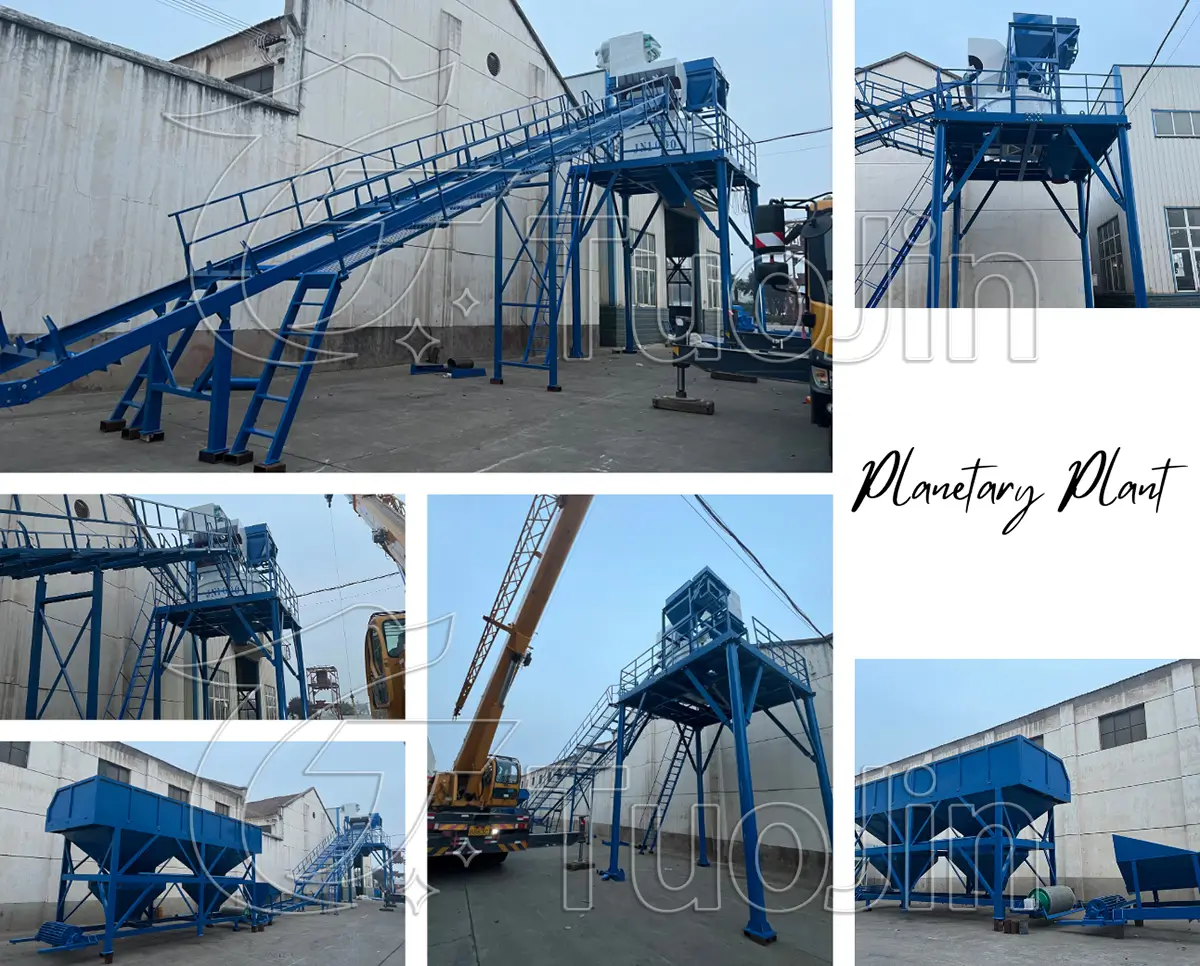
Maintenance and Care
Regularly check the wear condition of the mixing blades and replace them in time.
Keep the mixing drum clean to prevent material residue and caking.
Inspect the oil level of the gearbox and hydraulic system regularly.
Monitor the operating status of the electrical control system and troubleshoot issues promptly.
Periodically calibrate the weighing system to ensure accurate batching.
Service
Pre-sales Consultation: Professional advice to help you select the equipment that best suits your needs.
Customization: Tailor-made solutions to meet specific project requirements.
Installation and Commissioning: Remote technical support available, or experienced engineers can be dispatched for on-site installation guidance when necessary.
After-sales Support: Comprehensive warranty and technical support to ensure smooth operation of your equipment.
Spare Parts Supply: Prompt availability of original spare parts to minimize downtime.
FAQ
1. What types of materials are suitable for planetary mixers?
Planetary mixers are ideal for mixing high-viscosity, high-density, fine-particle materials or materials that require highly uniform mixing, such as high-performance concrete, self-compacting concrete, ceramic slurry, refractory materials, new energy battery slurry, and special glass raw materials.
2. What is the difference between a planetary mixer and a traditional twin-shaft mixer?
Planetary mixers have more complex mixing trajectories, resulting in more thorough mixing and higher uniformity, making them especially suitable for materials that demand superior mixing quality. Twin-shaft mixers are mainly used for conventional concrete production and are less effective when dealing with high-viscosity or specialized materials compared to planetary mixers.
3. Can the planetary mixer be customized according to customer needs?
Yes. Customized supplies: hoisting skip system, powder weighing device, liquid weighing device and special material weighing device.
4. What is a planetary mixer price?
Generally, standard planetary mixers range from $5,000 to $30,000 USD. For exact quotations, please contact us with your specific requirements.
5. Where can I find a reliable planetary mixer manufacturer in China?
China has many experienced planetary mixer manufacturers. Look for factories with ISO certification, rich export experience, and strong customization capabilities. TuoJin Machinery is a professional manufacturer specializing in high-quality mixers, with products exported to more than 30 countries.
6. What are the advantages of choosing a China planetary mixer factory?
Choosing a Chinese factory offers you:
Cost-effective pricing without compromising on quality;
Advanced production technology and strict quality control;
Customizable solutions tailored to your materials and process;
Fast production and delivery cycles;
Professional service teams that understand export standards and requirements.

